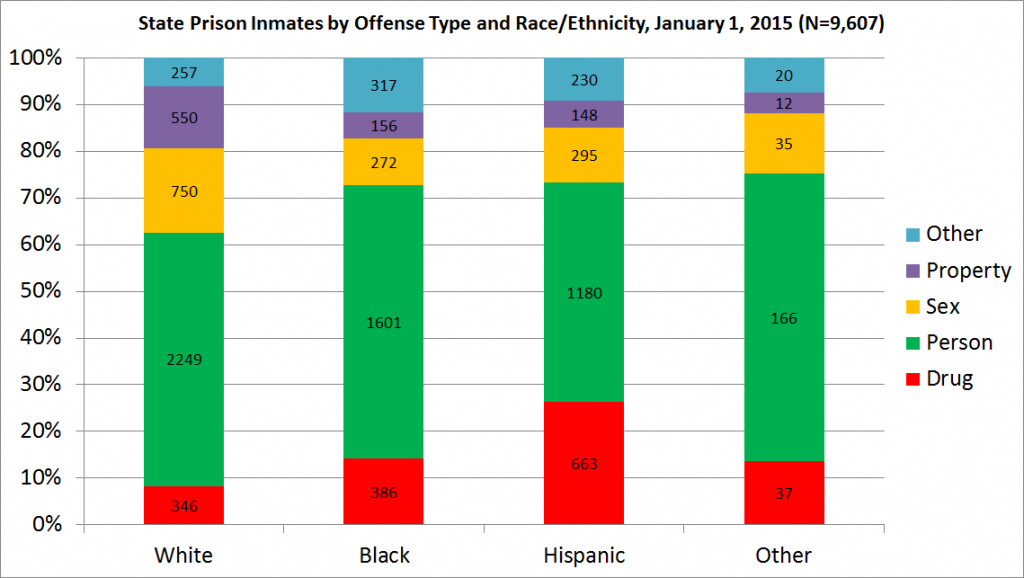The chart above, based on counts furnished by the Department of Corrections, presents a cross-tabulation of state prison inmates as of January 1, 2015 by race/ethnicity and offense type. As a share of incarcerated inmates, drug offenders represent a larger share among Hispanics, but the drug offense share has gone down. A study done in the mid-90s of the state prison population had drug commitments accounting for almost half of the Hispanic state prison population.
According to a Sentencing Commission analysis of the House of Corrections population (using on person-years committed in FY2013 as a proxy for population), the breakdown at the House level is more weighted to property offenses, but the drug shares are roughly the same as at the state prison level.


I suggest that you put an end to the falsehoods promoted throughout Massachusetts and provide the statitistics on how many people are in prison for possession of Marijuana? How many people are in prison for distribution of Marijuana? How many people are in prison for Trafficking in Marijuana? If there are any I would be suprised.
You are right that marijuana incarceration is not a big factor, but it does still happen. Another post in this series has the statistics: In Fiscal 2013, there were no state prison commitments for marijuana offenses; there were, however, two sentences (averaging 18 months in length) to the House of Corrections for trafficking over 50 pounds; in addition, there were 136 shorter sentences, mostly for distribution. The 136 shorter sentences do include 12 for possession, but these were likely plea agreements in distribution cases.
Massachusetts has adequate but strained resources for public supported treatment of addicts. We also have some functional “drug courts” that help divert non-violent offenders into treatment. However, the surge in deaths from high grade heroin that is saturating the state may prompt more legislation aimed at interdiction. This would be a mistake- we need more treatment.